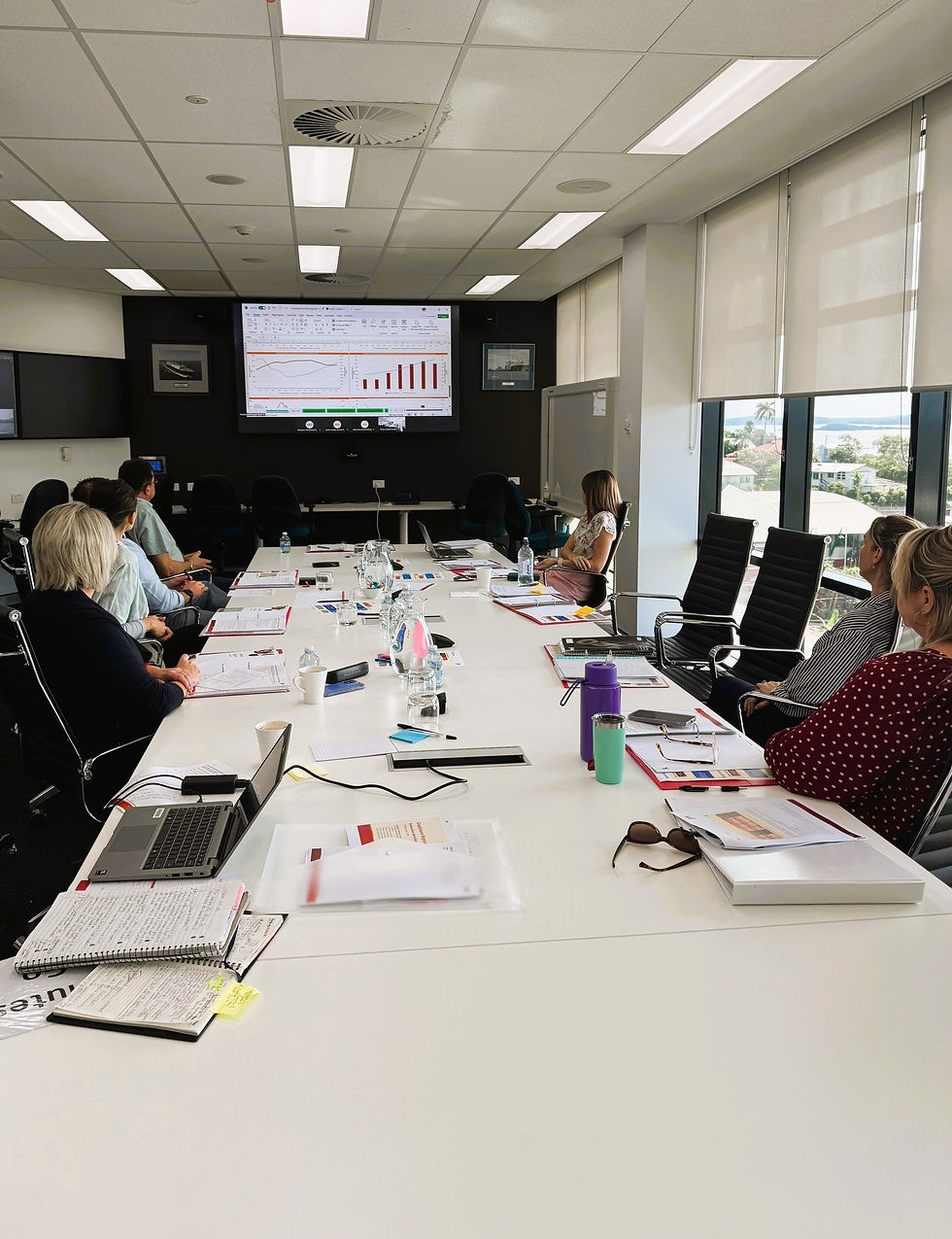Tracking Progress: Data and Evaluation Working Group Kicks-Off Wellbeing Review
- Jul 17, 2025
- 2 min read
Community members of the Gladstone Region Wellbeing Data and Evaluation Working Group have kicked off quarterly reviews as part of the annual GRT learning and evaluation cycle, to measure the impact of our community’s collective efforts in shifting the dial for improved wellbeing outcomes.

The Data and Evaluation Working Group was established in November 2024 following a community-wide invitation. It brings together local community members who have interest or experience in data and evaluation.
To track progress towards improved wellbeing for children and families, the Working Group collectively review, interpret and analyse data identified as indicators within the Gladstone Region Wellbeing Understanding Measurement, Evaluation and Learning (UMEL) Strategy.
The role of the Working Group is to lead the formal ‘sense-making’ process, weaving insights together to address key evaluation questions designed by community including:
Has the initiative improved wellbeing in the region across the focus areas of the Theory of Change that we intended to shift? Where have the results made a difference?
Is the impact effective, sufficient, sustainable and enduring? What improvements have been enabled in the systems?
To what degree have the outcomes justified the investment?

So far this year, the Working Group have met twice to assess outcomes based on evidence and data. These sessions included deep dives into wellbeing measurement indicators and activities led by Topic Specific Working Groups of GRT, linked to community priority areas:
Quarter 1 (May 2025) and Quarter Two (June 2025) meetings revisited the purpose of the Data and Evaluation Working Group, and refined learning questions developed to guide data interpretation. This has helped improve shared understanding and alignment of the group’s role and focus, in relation to Topic Specific Working Groups.
Topic Specific Working Groups are recognised as being made up of local community members with topic specific knowledge, training or experience including lived experience, who lead the practical implementation or ‘doing’ aspects of the work within community priority areas. These groups identify and define a specific issue, understand the challenge and causal factors, codesign solutions, plan and implement action, monitor progress and adjust as required, and then refine for improvement. The role of the Data and Evaluation Working Group is to evaluate whether the community-led work of GRT has impacted wellbeing outcomes for the community.
Current Topic Specific Working Groups are:
First Nations Working Group
Child Development Working Group
Housing Round Table
Gladstone Region Systems Leaders
Gladstone Health Working Group
Gladstone Industry Working Group
Shared Decision-Making Working Group
Gladstone Skills Attraction Working Group
Over the next 12 months, the Data and Evaluation Working Group will continue to grow capacity so that by November 2025, as the collective work of community is progressing, the Working Group will be able to start measuring early indicators of change in community wellbeing in the context of GRT’s contributions.
Visit the Measurement and Evaluation Webpage on the GRT website to explore the Gladstone Region Wellbeing UMEL Strategy and learn more about the role of the Data and Evaluation Working Group.


